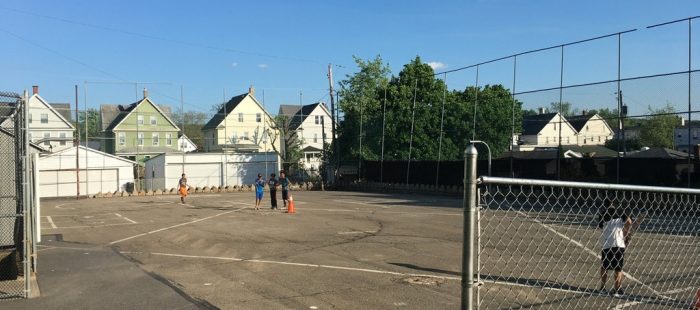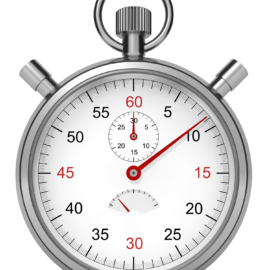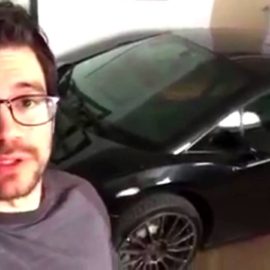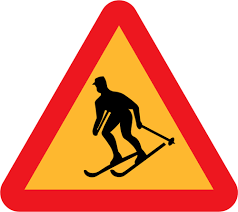Disclosure: I may earn affiliate revenue or commissions if you purchase products from links on my website. The prospect of compensation does not influence what I write about or how my posts are structured. The vast majority of articles on my website do not contain any affiliate links.
Twenty years ago, I started preschool at Prescott Elementary School in Scranton, Pennsylvania. It was a classic upbringing in a blue-collar neighborhood. It was simpler. Math was math, kids were kids, there was no air conditioning, and corporal punishment was in use. I walked to and from school with no supervision. We watched 9/11 on a rollaway TV in second grade. And, yes, we had a barren playground.
Recently, I’ve seen articles in the local newspaper mentioning how the school entered a contest to win a large grant to fund a new playground. My immediate thought was a bit humbug: what’s wrong with the current one? Then I watched the adorable contest entry video. I don’t know what other schools they were competing with, but using a modification of The Office intro theme assured that these kids were going to win.
The articles draw a clear picture: the playground is just a parking lot and the kids hate it. Supporting the proposal is the narrative that the surrounding area is now impoverished yet the school has gained national recognition for academic excellence (being designated a Blue Ribbon School in 2007-2008). The stage is set for a happy ending: it looks like the kids will get a playground and everyone involved will feel good. However, I have issues with this proposal both on a factual basis and on a philosophical plane.
Parking lots serve a purpose–they allow people to park their cars. Most of the elementary schools in Scranton are located in residential areas with limited street parking. During the winter months, when area residents became increasingly defensive of their shoveled spots, faculty and staff would park in the lot and the area of the playground would be reduced. For dances and special events, cars would be jam-packed. To my knowledge, every elementary school in the city has the same parking lot/playground mixed-use zone. It’s practical. It might be hard to fit automobiles under the monkey bars.
The articles mention safety precautions–adding two gates to be locked at night. The principal is quoted as saying that “we don’t want people there at midnight or one o’clock in the morning,” which makes sense, but what’s the real cutoff time? Can families use it after school? Can teenagers hang out there on weekends? What about the summer? The gates will help “appease the neighborhood” but it’s not clear what new dangers the upgrade will introduce. Further, there used to be two basketball hoops–net, backboard, and all–on the playground. The nets were removed, and, as referenced in the article, the backboards were, too. My once-precocious mind still remembers that we were told the basketball hoops were being taken apart because older kids were using them after-hours. The way I interpret this is that it’s now deemed okay provided people aren’t there at one in the morning, which strikes me as hypocritical.
I’m glad kids still at least want to play rather than stare at their phones, but part of me looks at this whole thing as if one teacher decided to be a hero and coaxed the kids into complaining about their play area. Sure, it’s a really exciting thing for the kids. But we never once complained or even thought about complaining because recess was incredibly fun and lunch in junior high was known for being like the mess hall in prison.
What’s fueling my angst is the question of whether kids these days are really so incapable of making their own fun. It doesn’t take much of an imagination to play kickball, dodgeball, foursquare, or any other classic schoolyard games. The boundary lines are still painted on the asphalt. We played tag, we held fence-to-fence races, and some people just spent the entire brief recess period doing weird shit. Someone (a child) saying “we just run around and be bored” is preposterous to me, because not once during my childhood did I feel bored while running around.




